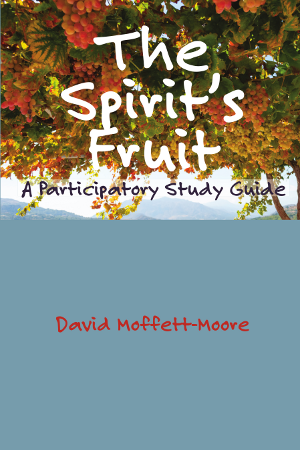Underlying Principles for Christian Education and Discipleship
… and with that pretentious title.
Actually, last night I talked on the Energion Tuesday Night Hangout (I’ll embed the video at the end as well) about Christian education and how one might go about choosing curriculum.
My sister, Betty Rae, asked me a question via e-mail this morning, and I thought it was so on point that I would post her comments and my response here. What am I actually up to at Energion Publications? For those who wonder, yes, my sister and I communicate like this quite a bit.
From her comments:
I have been trying to understand what is the purpose or goal you have in what you are doing. I think I may have glimpsed something tonight. Please tell me if I am right.
The early NT church consisted of home gatherings. They had no center of worship, like the Jerusalem Temple. So All that was Christian centered in these small groups. Luther calls them “small companies;” Ellen White, “little companies.” So if there is a difficulty with the church at large, the church may be preserved in the “small study groups,” as you are calling them. I saw in your presentation that you are encouraging the preservation of the individuality of individuals and groups. Your presentation tonight holds great significance as I see it. By leaving the groups free, even to making them free not to use your materials, room is left for the working of the Holy Spirit. Hopefully, the small groups will follow that example, and also leave the individuals in their groups free.
The time will come, however, if there is religious oppression, that small groups will be suppressed; as an example, “The Conventicle Act” in England, for disobeying of which John Bunyan spent 12 years in prison. During times of religious revival and opposition, believers were forced to meet in small groups, even outdoors in forests and mountains, for which they were severely punished if they were caught. John Wesley was forced, even to preach out of doors, when denied access to the churches. The Advent Movement believers met in small groups after they were thrown out of the churches, coming together in camp meetings.
On an individual basis, churches in this country have already persecuted and tried to suppress small groups, calling them “cults.” (The devil will always mix his counterfeit in with the true. Fear of being called a “cult” has discouraged the “small group.”) One thing that drew disapproval was the groups’ using of materials “unauthorized” by the denomination, which you addressed tonight in your presentation. Your work may be small, but who hath despised the day of small things!
Here’s my response:
One of my fundamental beliefs is that spiritual choices made through duress, emotional manipulation, or spinning data are of no positive benefit and are indeed destructive. Thomas Aquinas and I are not even playing on the same ball field on this one!
I carry this so far as to say that if I were helping to bring a Jew into Christian fellowship (no human “converts” anyone), I would want to make sure that person understood Judaism as well as Christianity to be sure he or she is making a choice that is as informed and as free as possible. Similarly, if a person is kept in the church because he or she was prevented from getting outside information, that brings no glory to God. While it may build up the church organization, the Kingdom of God is not built.
I could summarize this by saying that God’s kingdom cannot be built by deception, and trying to deny people information from another perspective is deception. That’s the reason leaders do it. The leadership is afraid that if we, the followers, have information other than what they approve, we might decide differently than we have.
This is often done for the best of motives. In the church, the idea is to prevent people who are less informed from being led astray. So information is restricted in pursuit of truth. But just because an approach is intended to accomplish something does not mean it will accomplish that. We often give credit to people for being well-intentioned, but the universe does not. The laws of physics don’t care about your intention. You may intend to fly when you jump off the cliff, but gravity (and the rocks below) does not say, “I’ll give him/her credit for having good intentions.” It’s just plain splat!
Similarly in politics we have a desire to limit information to what is accurate and unbiased. I agree that the internet provides a huge reservoir of material that ranges from misleading in presentation to flat out wrong. But those who would like to clean that up somehow, other than by countering false with true, are playing with fire. Whether it’s by controlling political spending or trying to narrowly define a “real” journalist, it’s going to head toward control, and control will lead to mass falsehood and delusion. The universe will not regard the supposedly truth-loving intentions of the censors.
So I do advocate freedom in ideas, and I follow that belief in the small (very small) world of my publishing business. I restrict what I publish not because I think the other stuff is bad, but simply to define a reasonable audience for me to try to address.
At the same time I personally advocate a program of education in churches, however carried out, that makes sure people are aware of the full range of ideas that are out there. Carrying this out will involve reading books that are written by people who disagree with and disapprove the church’s views as well as hopefully hearing directly from them. There’s nothing like hearing an idea from an advocate. I may be ever so careful to present my adversaries position, but hearing me is not as good as hearing them.
Those are the beliefs that underlie what I said about curriculum last night.
And for those who might need context, the actual presentation:


Just a short comment, Henry. If you ask a leader of a megachurch what holds their congregation together, the answer is usually “small groups.” The more small groups (10-50ish) they can build, the stronger the congregation.
Good point!